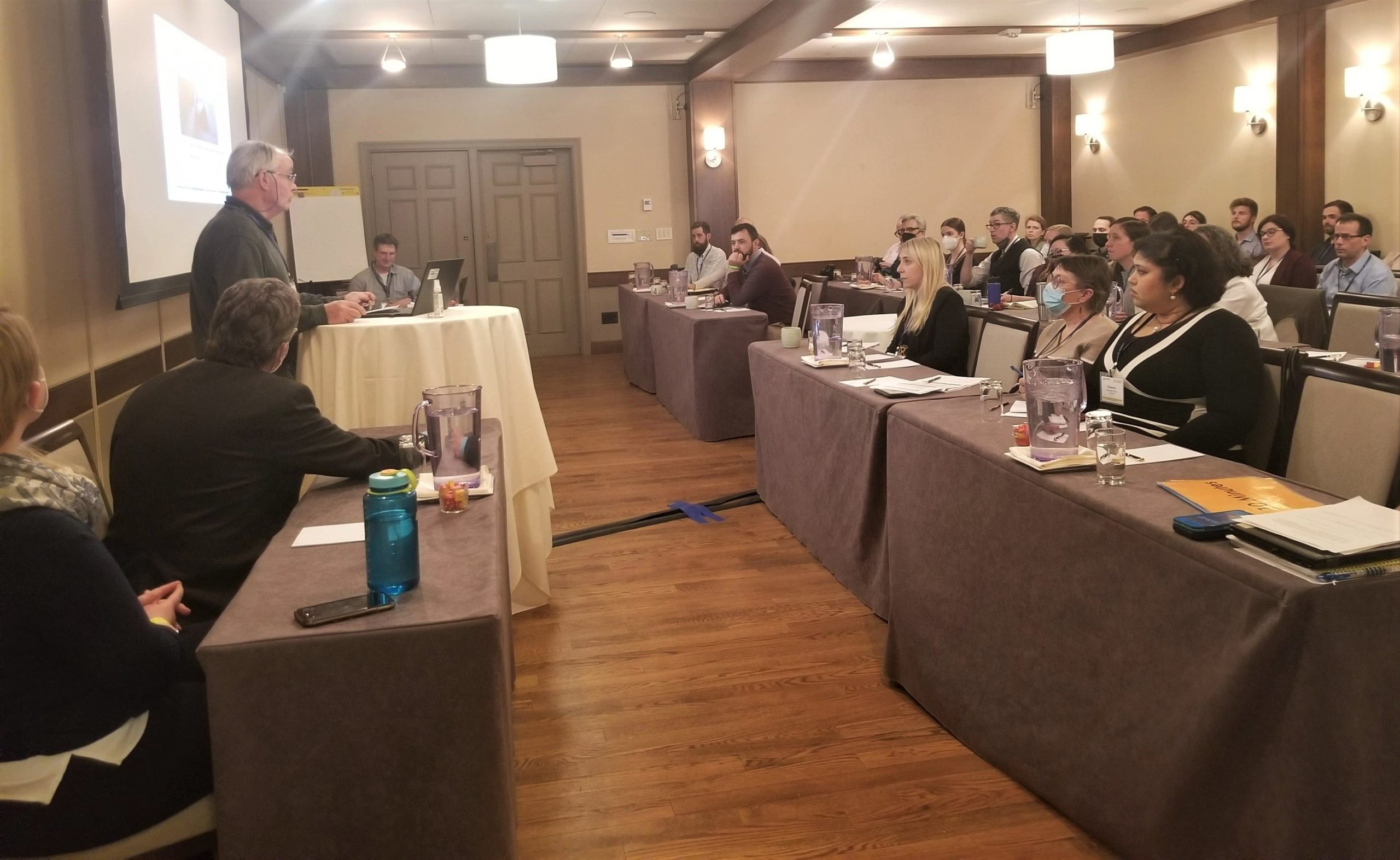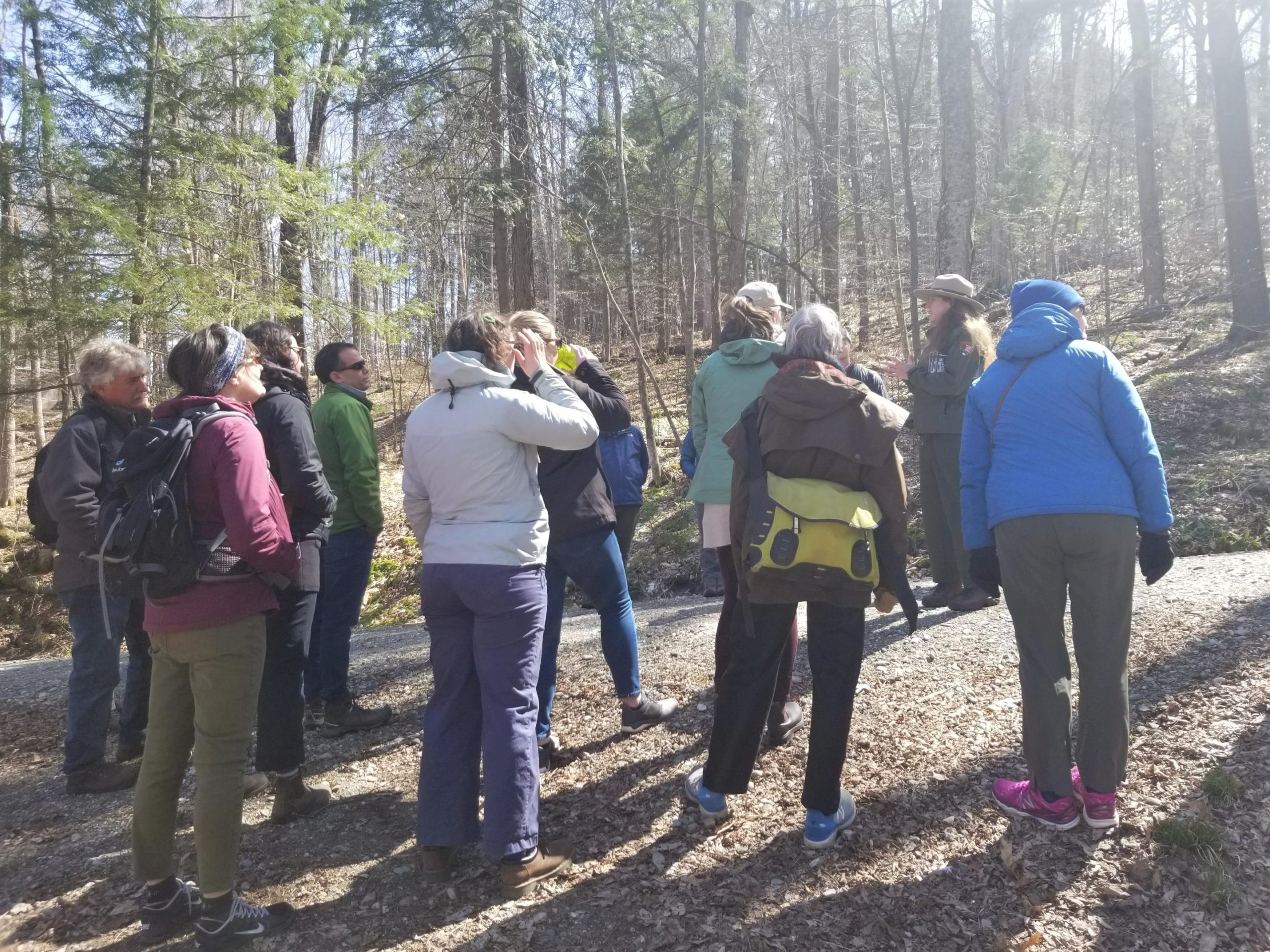Returning as an in-person event after being held virtually due to the pandemic, the 32nd Annual Nonpoint Source (NPS) Conference was held April 27-28 in Woodstock, Vermont. Acting as a regional forum to share information on NPS pollution issues, research, and related projects, the event drew more than 100 environmental professionals from the private and nonprofit sectors and state and federal agencies.
The conference theme was “Clean Water Act: Past and Future” to celebrate the 50th anniversary of the Clean Water Act in 2022. Speakers reflected on the past 50 years and looked to the future of clean water work in the region. Session topics included financing NPS projects, partnership building and community engagement, structural and non-structural Best Management Practices (BMPs), and other pivotal topics for the region and NPS community.
“Our ability to support the states from the Northeast and collaborate for innovative nonpoint source solutions is much enhanced by meeting together,” said NEIWPCC environmental analyst and planning team coordinator, Lynn Porta. “It was great to connect with the NPS community and hear about cutting-edge topics and research.”

Opening remarks were provided by Heather Radcliffe, director of NEIWPCC’s Water Resource Protection Programs and staff attorney; Rich Holschuh, founder of the Atowi Project, Elnu Abenaki; Maggie Gendron, deputy secretary of Vermont Agency of Natural Resources; and Mel Coté, Surface Water Branch chief, U.S. EPA Region 1.
“Incorporating the tribal perspective of Rich Holschuh [Elnu Abenaki] in the opening remarks was fantastic,” said Steve Landry, NPS Program coordinator with the New Hampshire Department of Environmental Services. “He gave us a sense of place and purpose relative to the reason we gathered to share the work we do – and provided a message of such sentiment and power.”
Given the conference location, Lake Champlain was a natural focus. Tom Schueler, executive director of the Chesapeake Stormwater Network, gave the keynote address, “Urban phosphorus reduction strategies for New England lakes worth stealing from the Chesapeake Bay Watershed,” offering relevant connections for the Lake Champlain phosphorus TMDL. NEIWPCC Environmental Analysts at the Lake Champlain Basin Program (LCBP) Lauren Jenness and Matthew Vaughan (and LCBP chief scientist) presented a spotlight on the LCBP successes and future, sharing the development of the new Stream Wise Program as well as long-term monitoring of tributaries.
The event concluded with a field trip to Billings Farm & Museum and Marsh-Billings-Rockefeller National Historical Park. The visits included a guided walk through Vermont’s first Forest of Recognized Importance and discussions of a variety of BMPs at the farm and park, interwoven with inspiration from George Perkins Marsh, author of the 1864 book, “Man and Nature,” which continues to influence conservation practices to this day.

The conference was organized by NEIWPCC, with assistance from the Vermont Department of Environmental Conservation (VTDEC), the Lake Champlain Basin Program, and the U.S. EPA.
NEIWPCC would like to thank our exhibitors: In-Situ and LG Sonic; as well as sponsors: Alpha Analytical, Ferguson Waterworks, Fuss & O’Neill, SEE, University of New Hampshire Stormwater Center.
The 2022 NPS Conference planning team included Lynn Porta (NEIWPCC), James Plummer (NEIWPCC), Lauren Jenness (NEIWPCC/LCBP), Bryan Dore (EPA), and representatives from the VTDEC: Emily Bird, Marli Rupe, Ethan Swift, Jim Pease, and Laura Lapierre.